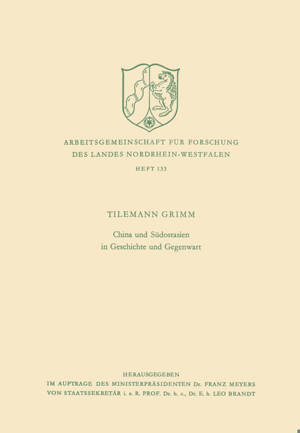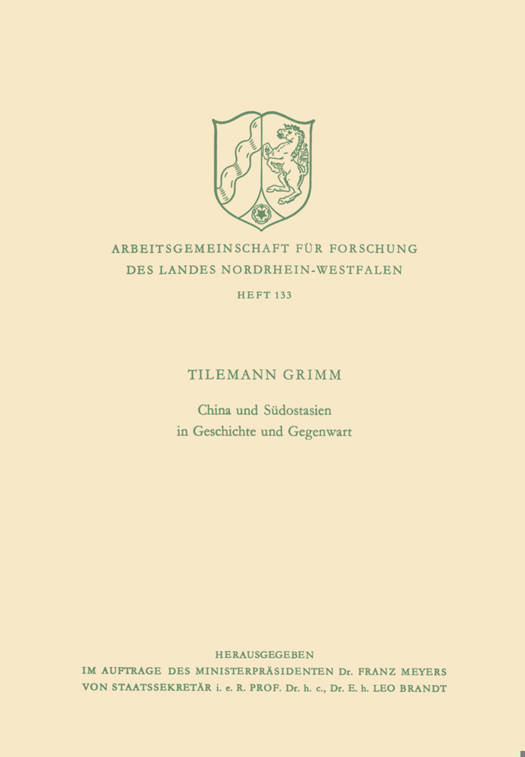
Bedankt voor het vertrouwen het afgelopen jaar! Om jou te bedanken bieden we GRATIS verzending (in België) aan op alles gedurende de hele maand januari.
- Afhalen na 1 uur in een winkel met voorraad
- In januari gratis thuislevering in België
- Ruim aanbod met 7 miljoen producten
Bedankt voor het vertrouwen het afgelopen jaar! Om jou te bedanken bieden we GRATIS verzending (in België) aan op alles gedurende de hele maand januari.
- Afhalen na 1 uur in een winkel met voorraad
- In januari gratis thuislevering in België
- Ruim aanbod met 7 miljoen producten
Zoeken
Omschrijving
The region of Southeast Asia is characterized by a diversity of lands and peoples which stands in equipoise to the unity of China. For the most part these peoples originally came from South China from whence, in the course of the centuries, they have moved towards Southeast Asia under the pressure of gradual Chinese expansion. There they were influenced and transformed by Indian culture and particularly by Buddhism. In China these events were at first merely recorded and since the 2nd century B. C. a position of power has been established only in North Vietnam. When, after the Mongolian period (1278-1367), China startet to take a political stand vis-a-vis the countries in Southeast Asia, these had long become independent, cultured, souvereign states. This is applicable also to Vietnam, culturally influenced by China. In general, they took an attitude of caution towards China as the leading power in East Asia. Since then China has regarded Southeast Asia as her sphere of influence. Colonial acquisitions, chiefly by England and France, the attempt by Japan polit- ically to unite the East Asian zone for the first time, as well as the failure of the French restoration after 1945, are all factors contributing towards the present-day confrontation in Vietnam. At the same time it becomes more and more evident that events during the 20th century are no longer explicable solely by the history of Asian traditions.
Specificaties
Betrokkenen
- Auteur(s):
- Uitgeverij:
Inhoud
- Aantal bladzijden:
- 60
- Taal:
- Duits
- Reeks:
- Reeksnummer:
- nr. 133
Eigenschappen
- Productcode (EAN):
- 9783663031185
- Verschijningsdatum:
- 1/01/1966
- Uitvoering:
- Paperback
- Formaat:
- Trade paperback (VS)
- Afmetingen:
- 170 mm x 244 mm
- Gewicht:
- 122 g

Alleen bij Standaard Boekhandel
+ 157 punten op je klantenkaart van Standaard Boekhandel
Beoordelingen
We publiceren alleen reviews die voldoen aan de voorwaarden voor reviews. Bekijk onze voorwaarden voor reviews.









